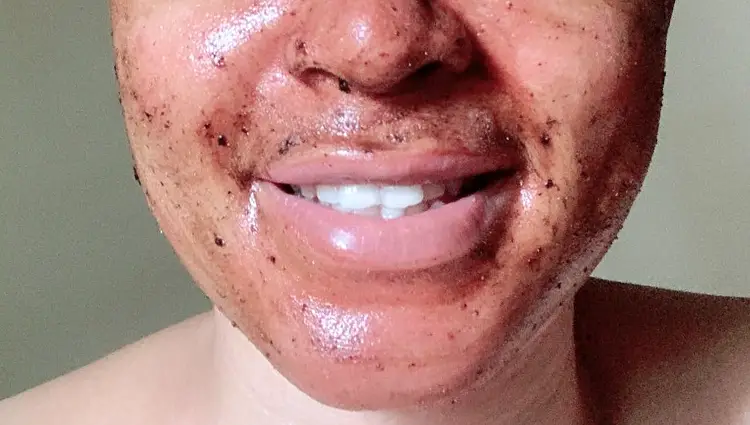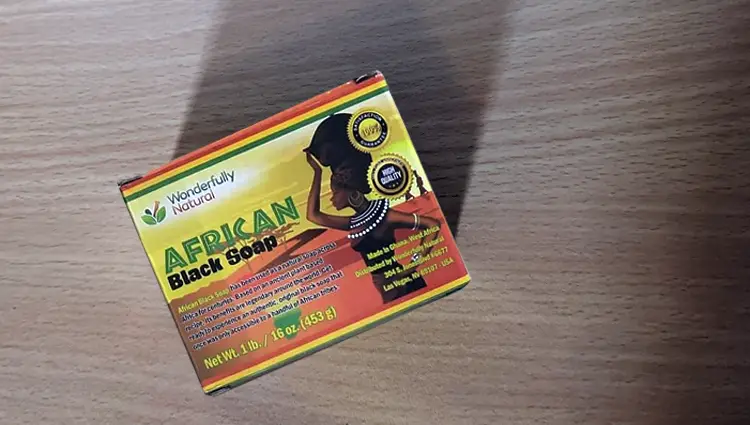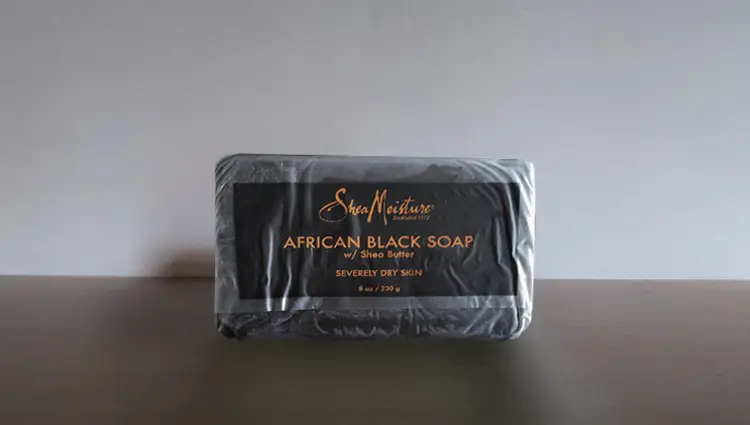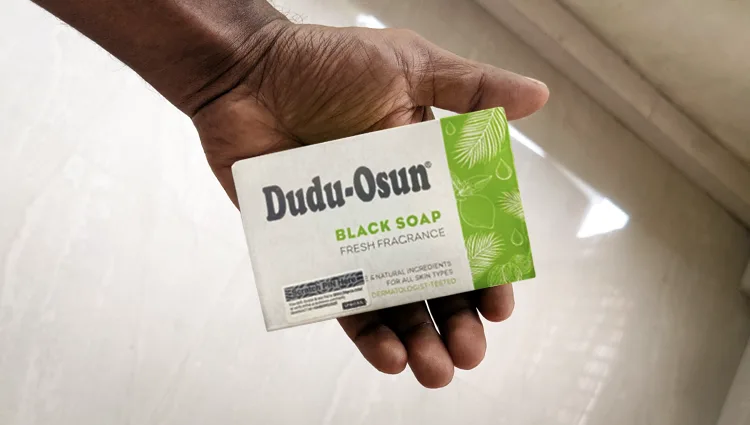Are you searching for a natural, affordable, and effective solution for your skincare concerns? Tired of battling acne, hyperpigmentation, or other skin issues? Frustrated with expensive products that don’t deliver?
If you answered “yes” to any of these questions, then you might want to try authentic African black soap!

African black soap is a traditional cleanser made from plant-based ingredients like shea butter, cocoa pod ash, plantain skin, and palm kernel oil. These ingredients give the soap its characteristic dark brown or black color. It’s known for its gentle cleansing and skin-soothing properties, making it a popular choice for those with sensitive or problematic skin.
Unlike many commercial soaps that contain synthetic ingredients, authentic African black soap is handmade using time-honored recipes. This makes it a more natural choice and often supports fair trade practices and local communities in Africa.
African black soap is also known as black soap, anago soap, alata simena, and dudu osun.
What Does Black Soap Do?
Black soap is believed to offer a variety of benefits for the skin. Some people find it helpful for:
- Reducing the appearance of fine lines: While not a miracle cure for wrinkles, black soap’s exfoliating properties may help minimize the appearance of fine lines.
- Fading dark spots: It may help fade hyperpigmentation and scars over time.
- Soothing razor bumps: Its anti-inflammatory properties can calm irritation from shaving.
- Managing skin conditions: Many people with eczema, dermatitis, or psoriasis find it soothing.
- Exfoliating the skin: Black soap gently exfoliates, revealing smoother, brighter skin.
Black soap is generally suitable for all skin types, from oily to dry. You can use it on your face and body, and it’s safe to follow with your usual moisturizers or makeup.
Authentic African black soap typically has a mild, earthy scent. However, some brands add natural fragrances, so check the ingredients if you have sensitivities.
What are the Ingredients of African Black Soap?
The beauty of African black soap lies in its simple, natural ingredients. The process generally involves:
- Harvesting plant matter: Cocoa pods, plantain skin, palm tree leaves, and shea tree bark are commonly used.
- Sun-drying: The plant materials are dried in the sun.
- Roasting: The dried plant matter is roasted to ash in a controlled manner.
- Adding oils: Oils like coconut oil, palm oil, and shea butter are added to the ash.
- Cooking: The mixture is cooked for an extended period, often a full day.
- Curing: The soap is then left to cure for several weeks.
The specific ingredients can vary depending on the region and the maker’s recipe. For example:
- Plantain skin: Rich in vitamins A and E, and iron.
- Shea tree bark: May provide some UV protection.
My Favorite African Black Soaps
When shopping for African black soap, you’ll want to read the reviews for each type to ensure you’re buying a quality brand. Some soap bars may have slightly different properties, like antibacterial and moisturizing effects.
With so many brands on the market, each with its unique properties and uses, it’s hard to know where to start. The following seven brands are some of my favorites.
1. Wonderfully Natural African Black Soap
I’ve been using this soap for a while now, and I’m impressed with it. I love the fact that this soap is natural and that it’s made by a Ghanaian-owned company—that makes me feel good about supporting them. The soap has palm kernel oil, coconut oil, shea butter, and cocoa pod—it doesn’t have any chemicals in it.

It comes in a block that’s about the size of a mini brick, but it can be cut into four equal parts that are each about the size of traditional bars. That makes it easy to use because you just grab a piece when you need it instead of bringing the whole thing into the shower with you!
I have noticed that this soap can cause drying and tightening of the skin if left on too long. You must follow up with a moisturizer to replenish any moisture lost during use. Also, be careful not to apply directly to your face as it may irritate!
It does help with dark spots on the body—but only if used regularly. You should expect some results within about 3 weeks of continuous use.
I also tried using this soap in my hair once! It suds up just like regular shampoo but it isn’t very moisturizing, so you’ll want to use conditioner afterwards. If you have natural 4a/4b/4c curly hair then this would be a good thing to try out
The smell of this soap is decent enough, but not fantastic—it’s more of an earthy smell than anything else. I’ve been using this soap for almost three months now, and I still have half left! So yeah…you could say it lasts a while…
The only thing that surprised me was that it dried out pretty quickly when left in the open air—so make sure to put it in a Ziploc bag when not in use. You can get 16 ounces of this soap for around $16.
2. Shea Moisture African Black Soap
It’s a dark black soap bar that’s blended with tamarind extract, tea tree oil, and shea butter—without any unnecessary fragrance. It has a nice organic cocoa and shea smell that lingers on your skin after you wash your face.
I was worried at first that the exfoliating granules in this bar would be too rough on my skin, but they are great at sloughing off dead skin cells without hurting me or making me red or itchy. The lather is silky and rich, easily washing off your face without leaving any residue behind.
I use circular motions when I massage the soap into my face and neck so it can get in there deep to clear out all the dirt and grime. Then I rinse thoroughly before following up with their African black soap clarifying toner for an extra clean finish.
I’ve never experienced any skin irritation or breakouts while using this soap. Be sure to moisturize afterward, though, because it will dry out your skin if you don’t!
If you have any ingrown hairs on your lady parts (or anywhere else), this will help calm them down. It also helped reduce my acne after a few weeks of use—if you’re looking for something to clear up mild eczema, this may be worth trying as well.
The Target near me sells the 8 oz bar for around $3.49, which seems like a good price considering how long it lasts.
3. Incredible By Nature African Black Soap
I saw a lot of people on TikTok talking about this black soap, so I decided to try it for myself. So when I received my package from Amazon, I couldn’t wait to try it out.
I was pleasantly surprised at how mild and pleasant the scent was. It reminded me of raw shea butter, but it wasn’t overpowering or off-putting; it was just right for my sensitive nose. The scent didn’t linger on my skin at all after rinsing, which is something that I appreciated.
I love that this soap comes in a 16 oz block so I can cut off a regular-sized piece whenever I want to use it or run out. It cuts very easily with an old paring knife into manageable pieces that last more than a week before needing to be cut again.
All you have to do is lather up with a sponge or washcloth after getting it wet. Then rinse it off only after about 30 seconds because letting this soap sit on your skin for too long can cause irritation. That’s why I only use it once per day—usually in the morning before work—and then moisturize with a mild organic moisturizer.
It diminishes the appearance of wrinkles and even helps get rid of deep painful acne. After just one use I could tell that my skin looked clearer and more radiant than before. And after five uses? It was like my skin had been reborn!
The only drawback is that it will disintegrate quickly if kept wet all day long. I keep my bar on a higher shelf in my shower so it won’t disintegrate as quickly from being wet constantly. The excess pieces are stored in a large Ziploc bag in case they’re needed later on. The one I’m currently using is kept in a little Tupperware container to keep it from being damaged by water.
4. Our Earth’s Secrets Raw African Black Soap
It’s from Ghana, and it’s raw African Black Soap. The ingredients are pretty simple: palm kernel oil, coconut oil, stearin oil, cocoa pod husk, unrefined shea butter, plantain skin ash, and natural vitamin E.
The first time I used it, I was worried about the small particles of plantain skin that could scratch or cause irritation, but that hasn’t been an issue at all. The soap does contain small particles of plantains that could scratch or cause irritation if you rub the soap directly on your face or skin, so you should definitely use a washcloth or sponge to lather it up first.
You can also turn it into liquid soap by putting it in water and letting it dissolve 1/3 soap to 2/3 water—it makes a great shampoo, too!
I use a back scrub brush to exfoliate my shoulders, back, and neck so the soap can do its job. It’s great for helping calm down acne breakouts if used regularly as well as soothing irritated skin due to eczema or psoriasis flare-ups; however, if your skin gets too dry from using this product regularly then just apply some moisturizer afterward (I recommend using Palmer’s cocoa butter).
The only downside is that it falls apart fairly easily, so you may need a mesh bag to store it after use. You can get 3 pounds for around $24.99, which is an awesome deal considering how long it lasts!
5. Era of Nature Organic African Black Soap
Compared to other black soaps I’ve tried, this one has the best lather. It’s thick, soft, and luxurious. It’s got a very earthy scent and it’s not the kind of soap you’d want to use as an aesthetic product (it’s not pretty). But if you’re looking for something that will make your skin feel clean and smooth, look no further!
It will leave a brown mark wherever it sits, yes it will wash off. To avoid this, get a soap bar holder. Make sure you don’t put your clothes on while washing your face.
Keep it out of the shower. If you store it on a ledge that gets wet often, it will melt and get gooey.
I have cystic acne, and while this soap hasn’t reduced my breakouts by itself, their frequency has decreased—and there are no new ones! My skin is now smooth, with no blemishes.
The bar itself is pretty massive—I cut small-sized bars off this block as I need them. You could definitely get 4 or 5 regular-size bars out of this. One drawback to this soap is that if you don’t store it properly, there might be air pockets that will cause the soap to fall apart (but that’s true with any black soap).
Overall though? This is definitely one worth trying out!
6. Dudu Osun African Black Soap
I really like Dudu Osun. It is one of my all-time favorite soaps. It’s not abrasive as other brands I have tried, and it has a pleasant clean natural herbal scent.
This soap lathers well on wet skin but doesn’t require a lot of water to create suds. It rinses off easily without feeling tight or dry on your skin which makes it perfect for daily use by everyone including those with sensitive skin conditions such as eczema or psoriasis.
I use it in the winter when my face gets drier than usual, and it works well at keeping my skin soft without drying out the areas around my nose or eyes. However, don’t apply to freshly shaved legs—it may cause little red bumps on your thighs (not cute).
Despite the color, the lather is white—so if you’re worried about staining your clothing like some other black soaps in this list, don’t be! The only thing I don’t like about this product is that I have to keep it dry after every use or else it will run out faster than a blink
If you buy in bulk, it’s only about $1.75 per bar—which is pretty incredible, considering how long they last.
7. Nubian Heritage African Black Soap
I first discovered this soap when I was shopping at Whole Foods, and I picked up a bar because it looked so pretty and I wanted to try it.
The first thing I noticed about the soap is that it’s ergonomically shaped, with rounded corners and a comfortable feel in my hand. It feels good in my hand, but when wet, it gets a little slimy.
It’s black, and it’s made with oats, aloe, and vitamin E. The soap cleanses and heals your skin, evens out its tone, and doesn’t leave any residue behind on your face or body—it just gets all of the dirt out!
It also has a pleasant smell—not too strong or perfume-y like some soaps I’ve tried before. It’s mild enough for those who prefer unscented products.
The texture of this soap is great! The oats in the soap exfoliate my skin so nicely; I can feel them working as I wash myself. It will slough off dead skin cells to reveal fresh new skin beneath and encourage the growth of new skin cells. After using this soap for about two weeks now, my skin is noticeably smoother and softer than before.
The only thing I didn’t like about this soap was that it took a long time to create enough lather for me. It comes in 5-ounce bars, which are wrapped in plastic and cost around $2.99 each.
African Black Soap Uses & Benefits
Many people use African black soap to address specific skin concerns, but it also offers a range of general benefits:
- Cleanser: It effectively cleanses the skin without stripping away natural oils.
- Sensitive Skin: A good alternative to commercial soaps that may contain harsh chemicals.
- Eczema Relief: Can soothe itching and inflammation associated with eczema.
- Fade Discoloration: May help fade hyperpigmentation, scars, and blemishes.
- Psoriasis Management: Can help calm the dry, flaky patches associated with psoriasis.
- Allergy Relief: May soothe skin irritated by allergies or stress.
- Oil Control: Helps regulate sebum production, reducing excess oiliness.
- Pore Cleansing: Unclogs pores and helps prevent breakouts.
- Blackhead Reduction: Can help reduce the appearance of blackheads.
- Razor Burn Relief: Soothes irritation and bumps caused by shaving.
- Body Odor Control: Has natural antibacterial properties that can help control body odor.
Precautions & Safety Measures
While generally safe, keep these precautions in mind when using African black soap:
- Gentle Application: Use your hands to lather the soap and apply it gently to your face. If using a washcloth or loofah, avoid harsh scrubbing.
- Lather in Hands: Create a lather in your hands before applying to your face to prolong the life of the soap bar.
- Less is More: Start with a small amount of soap, as a little goes a long way.
- Pat Dry: Gently pat your skin dry with a towel; avoid rubbing.
- Discontinue if Irritated: If you experience any irritation or redness, stop using the soap. You might be allergic to one of the ingredients.
- Read the Label: Choose soaps with minimal and natural ingredients.
- Healing Takes Time: If using black soap to address skin concerns, it may take several weeks to see significant improvement.
- Avoid Eyes: Keep the soap away from your eyes. Rinse immediately if it gets in them.
- Patch Test: Before first use, test the soap on a small area of your inner wrist.
- Frequency: Use black soap up to twice daily, but adjust based on your skin’s needs.
The Takeaway
African black soap offers a natural and effective way to care for your skin. With its gentle cleansing, exfoliating, and skin-soothing properties, it can be a valuable addition to your skincare routine. Remember to choose authentic African black soap from reputable brands, and always listen to your skin. If you experience any irritation, discontinue use and consult with a dermatologist.
We encourage you to try African black soap and discover its potential benefits for yourself. Start with a small amount and gradually incorporate it into your daily routine.
Want to share your experiences with African black soap? We’d love to hear from you! Leave a comment below and let us know your favorite brands and how black soap has helped your skin.







